
This public program focused on communicating about climate, specifically, the role communication plays in educating, informing, and persuading publics about climate change. Panelists also discussed obstacles to communicating about this global issue, from climate change denial to divergent values and attitudes about climate change.
Reception: 5:00 – 6:00 PM
Program: 6:00 – 7:30 PM
Moderator
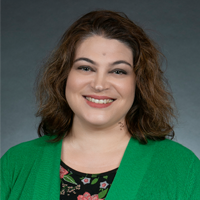
LaKesha N. Anderson, Ph.D., Director of Academic and Professional Affairs, National Communication Association
LaKesha N. Anderson is the Director of Academic and Professional Affairs at the National Communication Association and a faculty member in the Johns Hopkins University’s MA in Communication Program. Anderson holds a Ph.D. from George Mason University. Her research on health, risk, and crisis communication has been featured in several journals and books. Immediately prior to joining NCA, she was an Assistant Professor of Communication at Indiana State University.
Panelists
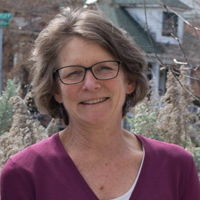
Amy Cilimburg, Climate Smart Missoula
Amy Cilimburg is the Executive Director of Climate Smart Missoula, where she advocates for climate solutions and works to build networks and community resiliency. She helped launch Climate Smart in 2015 following efforts to develop Missoula’s municipal and community Climate Action Plans and has worked on climate and energy policy and conservation for over a decade. Cilimburg holds an M.S. degree in Wildlife Biology from the University of Montana. She is presently Board Chair of the Missoula’s Mountain Line Transit System, is on the Board of the Missoula Chapter of Montana Conservation Voters, and was recently appointed to the Governor’s Climate Solutions Council.
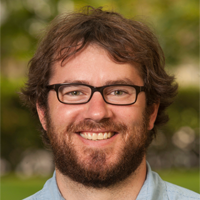
Matthew Frank, Fellow in Regional Journalism, O’Connor Center for the Rocky Mountain West
A Missoula-based journalist and educator, Matthew Frank is currently a Fellow in Regional Journalism at the O’Connor Center for the Rocky Mountain West at the University of Montana, where he edits Mountain West News. He regularly teaches the Wild Rockies Field Institute course, “Cycle the Rockies: Energy and Climate Change in Montana.” Frank has also taught in the University of Montana School of Journalism’s graduate program in Environmental Science and Natural Resource Journalism. His work has won several regional and national awards, including a first-place prize for beat reporting from the Society of Environmental Journalists.
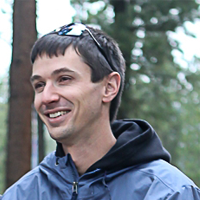
Peter McDonough, Climate Change Studies Program Coordinator, University of Montana
Peter McDonough began teaching as an education volunteer with the Peace Corps in Tanzania, where he lived and taught high school for three years. Since returning home, he has worked primarily in climate change education, developing climate and energy classes for Stanford University’s summer institutes and for the University of Montana within Environmental Studies, Climate Change Studies, and the Global Leadership Initiative. McDonough holds a B.S. in Physics from the University of Puget Sound, an M.S. in Civil and Environmental Engineering from Stanford, and an M.S. in Environmental Studies from the University of Montana.
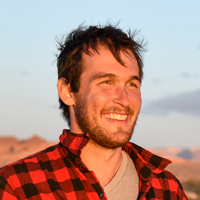
Nick Mott, Producer, Threshold
Nick Mott is the producer at Threshold, a podcast and radio show. Season two, Cold Comfort, told the story of climate change in the Arctic through the eyes of the people who live there. The show was recognized with a national Edward R. Murrow award. Mott has also worked as a reporter at Montana Public Radio, where his coverage has earned him accolades from the Associated Press. Through his audio reporting, Mott has found himself trapping grizzly bears, chasing sled dogs, and tracking lynx via snowmobile, microphone in hand. His work in audio, photography, and writing has appeared in NPR’s Morning Edition and All Things Considered, Outside, PRI’s The World, the Mountain West News Bureau, The Washington Post, Kaiser Health News, Alpinist, and more. Mott is also producer at the MTPR podcast, Richest Hill. He holds an M.A. in environmental journalism from the University of Colorado Boulder.
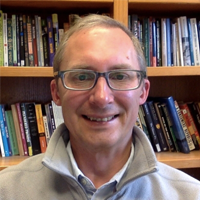
Steve Schwarze, Professor of Communication Studies and Director, Climate Change Studies Program, University of Montana
Steve Schwarze is a Professor of Communication Studies in the University of Montana’s Department of Communication Studies Program, and Director of the Climate Change Studies Program. His research focuses on rhetoric and public discourse, with a specific focus in environmental rhetoric. Schwarze’s work on the rhetoric of environmental controversies has been published in the Quarterly Journal of Speech, Rhetoric & Public Affairs, and Environmental Communication, and he is a three-time recipient of the NCA Environmental Communication Division’s Christine L. Oravec Research Award. Schwarze holds a B.A. from Drake University and a Ph.D. from the University of Iowa.
![]()
A Public Program of the National Communication Association.
Co-Sponsored by the University of Montana Climate Change Studies Program and the University of Montana Department of Communication Studies.




